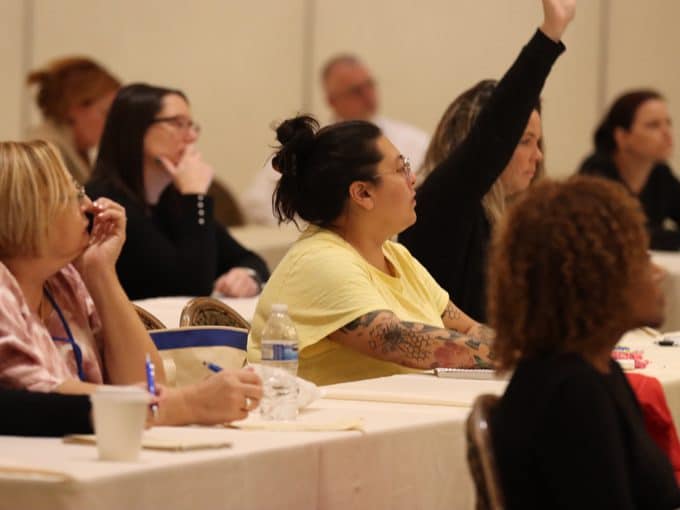
Share Your Expertise at the NCCHC Spring Conference on Correctional Health Care
Help shape the future of correctional health care.
Home Deaf and Incarcerated, Part 3: Legal Considerations
 Jul 14, 2022
Jul 14, 2022Both the Americans with Disabilities Act and the Rehabilitation Act protect individuals with disabilities, including those who are incarcerated. Both laws use the same legal standards and offer the same range of remedies.
The major protections are the right to participate in or gain the benefits of services, programs, or activities of a public entity (called a participation claim); and freedom from discrimination based on the disability (called a discrimination claim).
Interestingly, neither one allows the plaintiff to recover money damages unless there is discriminatory intent. For that reason, many plaintiffs add constitutional claims of deliberate indifference as a way to prove discriminatory intent.
To prove a participation claim, the plaintiff must show:
To prove a discrimination claim, the plaintiff must show:
In deliberate indifference cases, the plaintiff much prove:
Applications in the Correctional Setting
Hearing impairments qualify as disabilities if they substantially limit hearing, speaking, and communicating. The incarcerating agency must take steps to make communications as effective as they are with others. However, the type of auxiliary aid or service needed to ensure effective communication varies depending on the person’s specific medical and lingual history and the complexity and nature of the communication.
The ADA requires that deference be given to the requests of the disabled individual for specific aids. In addition, the incarcerating agency has a duty to gather sufficient information from the person and, if needed, qualified experts, to determine what accommodations are necessary. Failure of the agency to perform any inquiry can result in an award of money damages.
Aids for Medical Appointments
Do Deaf individuals have a right to American Sign Language interpretative services for medical visits during incarceration?
The courts’ answer often turns on the specifics of the health care exchange itself: the more complex the subject matter, the longer the visit, and the more chaotic the environment, the higher likelihood that the court will side with the patient’s claim that an ASL interpreter was required. Especially with today’s technology, which allows for web-enabled interpretative services with little advance notice, plaintiffs have stronger arguments to support these types of claims.
Telephone Aids
When it comes to specific technology to aid in telephone communication, case law on rights is far from settled. For instance, a Michigan federal court decision found an ADA violation for offering only teletypewriters, while a Louisiana federal court held the exact opposite and deferred to the correctional agency’s choice of TTY over video technology.
Other cases have required ASL interpreters during routine phone calls only if the person’s hearing loss and language skills render interpretation services the only option for effective communication.
Takeaways
As is so often the case when hundreds of different judges throughout the country hear similar legal challenges, the results are not nearly as uniform as the legislation tries to make them. However, as technological advancements make connectivity cheaper and easier and as internet access, even in limited capacities, increases in jails and prisons, it is logical to expect that claims seeking interpretative services for incarcerated individuals who are Deaf will continue to be pursued, both on individual and class action bases.
Deana Johnson, JD, is general counsel for Centurion Health and the recipient of the 2021 B. Jaye Anno Award for Excellence in Communication.


